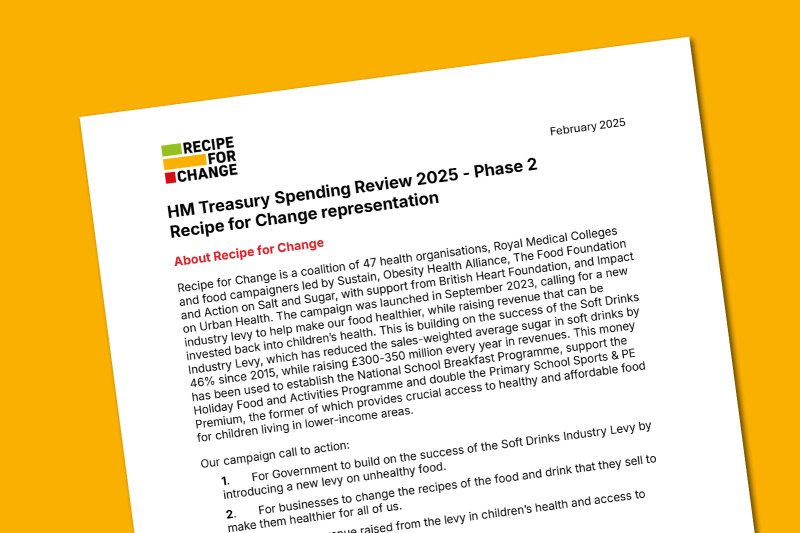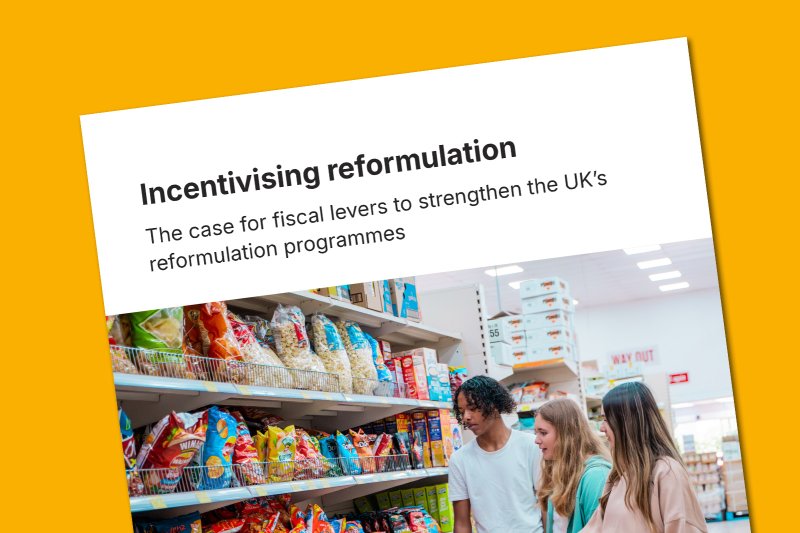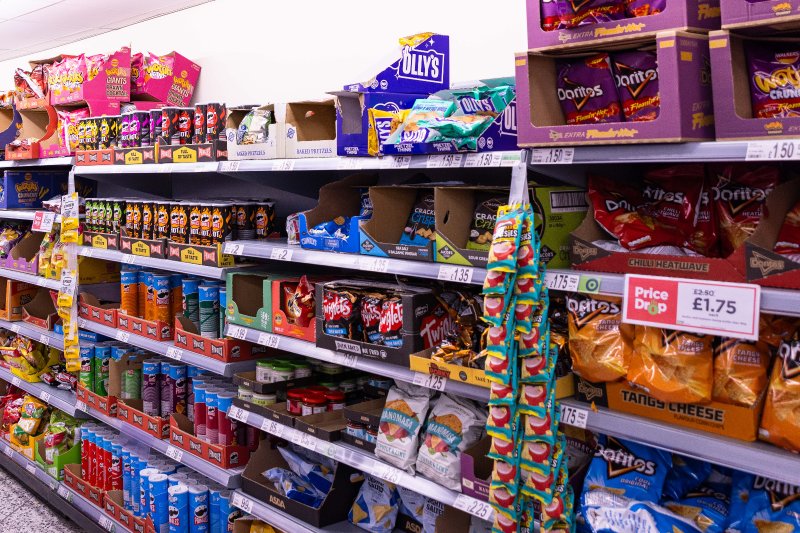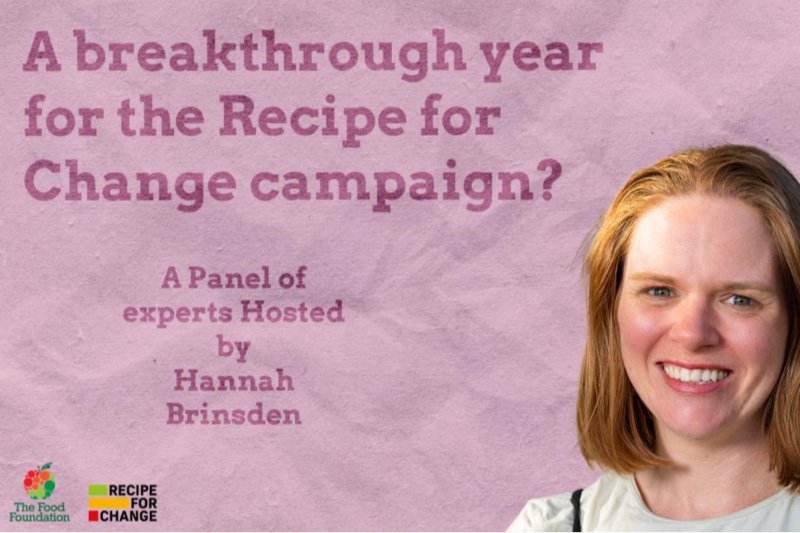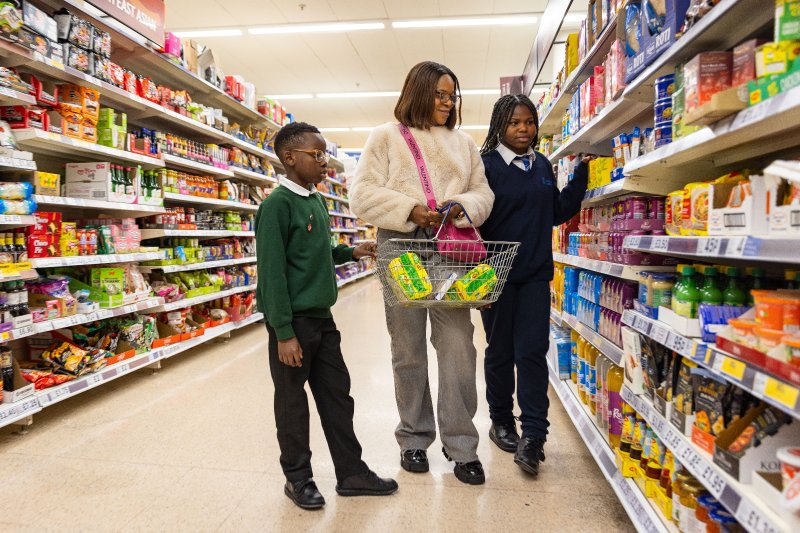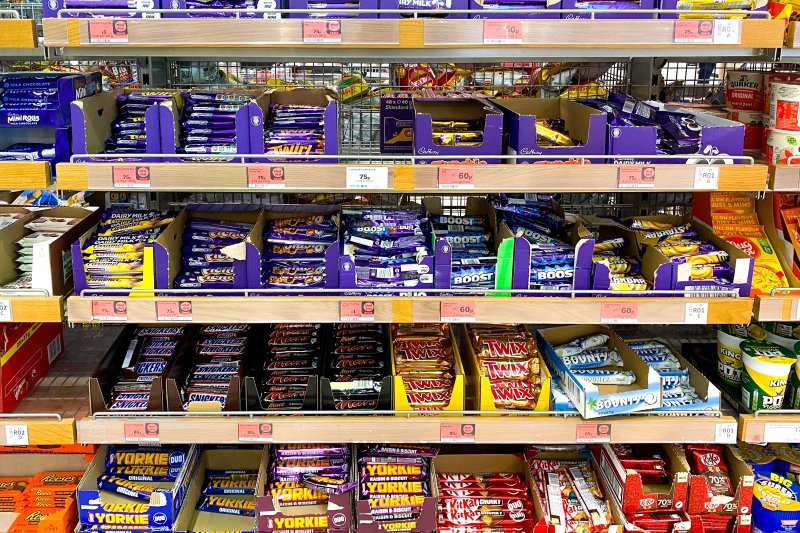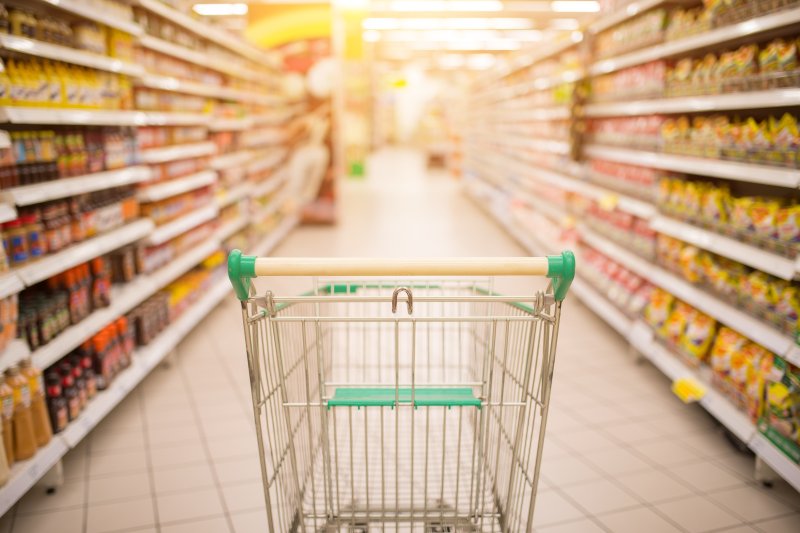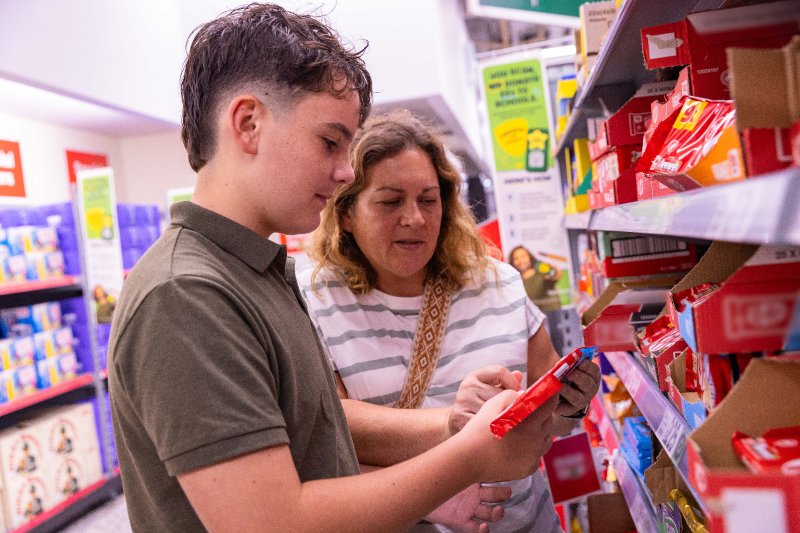Blog
Will the 2024 Spring Budget be a Recipe for Change?
Chancellor Jeremy Hunt will present his Spring Budget on 6 March, and in our Recipe for Change submission we're calling on HM Treasury to review and expand the Soft Drinks Industry Levy. This includes increasing the charging rates for the levy and expanding it to include sugary milk-based drinks. Here, we reveal which high street coffee chain's new 'hot milkshake' contains 51g of sugar and why we're asking the Treasury to call for evidence on financial incentives for healthier food and drink production.
Jeremy Hunt once said he wanted “a game-changing moment” to improve children’s health. It was 2016 and Hunt, now the UK’s Chancellor, was then the Health Secretary. This was the year the Government published their Childhood Obesity Strategy, which announced the introduction of the Soft Drinks Industry Levy (SDIL), and two years before committing to halving childhood obesity by 2030. They are currently set to miss this target.
The SDIL was introduced in 2018 and has successfully reduced the average amount of sugar in soft drinks by 46%, without harming sales to the soft drinks industry. We’re beginning to see the health impacts too. The SDIL is associated with preventing cases of obesity particularly among Year 6 girls, and a 12% reduction in cases of children going to hospital for tooth extractions. The revenues from companies who are still producing very sugary drinks have also totalled over £1.5 billion so far. These funds have supported the government’s ability to invest in children’s health programmes, including establishing the National School Breakfast Programme and expanding the Holiday Food and Activities Programme.
Despite this, the SDIL could be working harder, and the Government needs to go beyond the existing levy if they want to have any chance of meeting their own targets on childhood obesity.
The SDIL has been in place for six years, but unlike tobacco and alcohol duties, the Treasury has not progressively increased the rates to deter production and consumption, not even to keep pace with inflation. This is a gift to soft drinks businesses who are effectively paying less every year, while this lost revenue could have supported much-needed children’s health programmes. Meanwhile, revenues are still increasing (£355 million last year up from £334 million). This means we likely haven’t hit the limit for reformulation potential and the rates could be increased to encourage greater reductions in sugar.
The Treasury has also never reviewed the levy’s thresholds and should do so to incentivise companies to keep reducing sugar levels. Businesses pay if their soft drinks contain 5-8g of sugar per 100ml, and pay more if the sugar content is over 8g. This has led to a significant reduction of sugar in drinks to just below the 5g and 8g thresholds. But this means a drink like a typical 330ml can of Fanta (which falls below the 5g threshold, and so is exempt from the SDIL) still contains over half of a child’s daily sugar limit.
The levy also hasn’t been extended to milk-based drinks and the sugar content of these in the out-of-home sector continues to rocket. In January, Costa released a new range of incredibly sugary hot milkshakes. Their ‘Chocolate Hazel Hot Milkshake’ contains a whopping 51g of sugar - more than 1.5 times an adult’s recommended daily sugar intake. And yet it remains exempt from the sugary drinks tax. It’s clear that this is a major omission from the levy that the Treasury needs to address.
We’ve also recommended that the Government review the evidence on new measures, which can encourage healthier food and drink production. We’ve seen that the SDIL model works, which is why the measure we're calling for is a new levy on manufacturers who produce unhealthy food.
A new levy has the potential to bring significant health and economic benefits. Recent research by the London School of Hygiene and Tropical Medicine, commissioned by Recipe for Change, found that an industry-wide levy on salt and sugar could prevent up to two million cases of disease over 25 years, and could provide gains of around 3.7 million quality-adjusted life years, with an economic value worth £77.9 billion over 25 years.
A more focused sugar levy applied industry-wide on biscuits, confectionery, cakes and desserts alone could still prevent up to 800,000 cases of diseases over 25 years and could support more than 1 million quality-adjusted life years with an economic value of £23 billion over 25 years.
As well as these health and economic impacts, the National Food Strategy estimated that a new levy could generate between £2.9bn–£3.4bn per year for HM Treasury. These revenues could go a long way in building on the investments in children’s health from the SDIL.
While the Government is set to ban disposable vapes to protect children’s health, we have to ask why the “strong action” is needed in this area but not when it comes to children’s health more broadly? We hope the Chancellor sees that including our recommendations in the upcoming budget is necessary if they are serious about improving health and reducing rates of obesity.
Read our full Spring Budget 2024 representation here.
Kate joined Sustain in June 2023, and coordinates the Recipe for Change campaign, as part of the wider Children’s Food Campaign. Recipe for Change is calling on the Government to introduce new industry levies to help make our food and drink healthier, building on the success of the Soft Drinks Industry Levy.
Kate Howard
Campaign Coordinator
Children's Food Campaign Sustain
Published 13 Feb 2024

